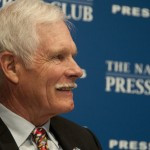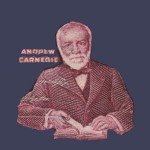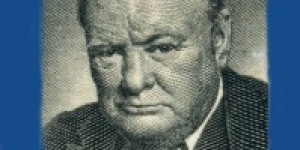Gordon Moore

Intel- "Most of what I learned as an entrepreneur was by trial and error."
From the beginning at Intel, we planned on being big.
Gordon Moore (and Robert Noyce)
We still weren’t really quite entrepreneurs, but we had learned something along the way.
Gordon Moore (and Robert Noyce)
Most of what I learned as an entrepreneur was by trial and error.
Gordon Moore (and Robert Noyce)
I had no training in business after my sophomore year of college. I didn’t take any courses outside of chemistry, math, and physics.
Gordon Moore (and Robert Noyce)
We had no idea at all that we had turned the first stone on something that was going to be an $80 billion business.
Gordon Moore (and Robert Noyce)
A couple of ounces of dynamite makes for a great firecracker.
Gordon Moore (and Robert Noyce)
I didn’t quite know what a chemist was, but I kept it up and got my PhD in physical chemistry.
Gordon Moore (and Robert Noyce)
He had some peculiar ideas for motivating people. I had no management experience or training. Unfortunately, neither did Shockley.
Gordon Moore (and Robert Noyce)
That may not sound like much now, but it was a month’s salary in 1957.
Gordon Moore (and Robert Noyce)
Now, I don’t mind missing an opportunity because we tried and failed. We took some fairly aggressive and not always successful steps toward producing computer products early in the company’s life – for example, the 432. The 432 was probably the first 32-bit microprocessor; it was hardware designed to execute object-oriented software; the hardware and software were designed together and had many advanced features. At the time that we designed the system, the technology wasn’t quite ready for such complexity, and in order to get all the functionality on the chip, we had to sacrifice performance. It ended up being so slow it could do hardly anything, and we had to abandon it. But at least it was an aggressive shot – one that we just didn’t target correctly.
Gordon Moore (and Robert Noyce)
This was the first of the Silicon Valley spin-offs that we suffered. After our initial feelings of shock and betrayal, we sat down and discussed what we should do.
Gordon Moore (and Robert Noyce)
I felt that new management would probably change the nature of the company significantly. I decided I’d rather leave before any changes, than after. So, the two of us set off to do something else.
Gordon Moore (and Robert Noyce)
We saw semiconductor memory as an opportunity to make something complex and sell t for all kinds of digital applications. So that was the first thing we went after. That was really the basis of our business plan.
Gordon Moore (and Robert Noyce)
Fortunately, very much by luck, we had hit on a technology that had just the right degree of difficulty for a successful startup. This was how Intel began.
Gordon Moore (and Robert Noyce)
One of my colleagues claimed Shockley could see electrons. He had a tremendous feeling for what was going on, say, in silicon.
Gordon Moore (and Robert Noyce)
In such a small entrepreneurial group, having in-people and out-people created some dissention, the sort of thing that makes it hard to keep everybody working together as a team.
Gordon Moore (and Robert Noyce)
The beginning of the end, as far as morale was concerned, occurred when we had a minor problem in the company and Shockley decided that the entire staff was going to have to take lie detector tests to find out who was responsible for it.
Gordon Moore (and Robert Noyce)
We were told essentially that Shockley was in charge, and if we didn’t like it we probably ought to look at doing something else.
Gordon Moore (and Robert Noyce)
I think a lot of this really could have been learned more efficiently.
Gordon Moore (and Robert Noyce)
Building a successful enterprise is satisfying and rewarding.
Gordon Moore (and Robert Noyce)
Broadening the education to include some instruction in business – a little bit about finance and organizations – would certainly be useful, and I think a course in this direction would probably be a significant addition to the curriculum.
Gordon Moore (and Robert Noyce)
There is such a thing as a natural-born entrepreneur, for whom the entrepreneurial urge drives everything, and who can make a business out of almost anything. But the accidental entrepreneur like me has to fall into the opportunity or be pushed into it. Then the entrepreneurial spirit eventually catches on.
Gordon Moore (and Robert Noyce)
To me the opportunities to start a company are few and far between. I’m not the sort of entrepreneur who can just say, “I’m going to start a company. Let’s look for an opportunity.”
Gordon Moore (and Robert Noyce)
They talked to us and said: “You don’t want to look for a company to hire you; you want to set up your own company.” That didn’t sound bad.
Gordon Moore (and Robert Noyce)
None of us knew how to run a company.
Gordon Moore (and Robert Noyce)
We talked about what it ought to be. But even though we talked about it, we were too darned busy doing other things, and we never go around to moving in that direction. So we missed that chance completely.
Gordon Moore (and Robert Noyce)
Long before Apple, one of our engineers came to me with the suggestion that Intel ought to build a computer for the home. And I asked him, “What the heck would anyone want a computer for in his home?” It seemed ridiculous!
Gordon Moore (and Robert Noyce)
We took some fairly aggressive and not always successful steps toward producing computer products early in the company’s life.
Gordon Moore (and Robert Noyce)
It ended up being so slow it could do hardly anything, and we had to abandon it. But at least it was an aggressive shot – one that we just didn’t target correctly.
Gordon Moore (and Robert Noyce)
In retrospect, there are a lot of things we could have done better along the way. But, we did enough right to grow a fairly large company.
Gordon Moore (and Robert Noyce)
It’s important to remember one thing that is essential for any entrepreneurial organization. Do what you do well. Look at other things as incremental opportunities, but don’t change the basis of what you do well.
Gordon Moore (and Robert Noyce)
My advice to Caltech is this: Help students a bit if they want to move in entrepreneurial directions, but don’t change the basic nature of Caltech education.
Gordon Moore (and Robert Noyce)
We recognized that there were existing semiconductor companies that would probably come into our area if we were successful.
Gordon Moore (and Robert Noyce)
We wanted to get big enough before they got turned around, to make it so they couldn’t put us out of business. We moved from that point to the point where we have a major influence on, really, the electronics industry worldwide, particularly everything associated with computing.
Gordon Moore (and Robert Noyce)
I think what keeps a lot of us going in this business is the opportunity to compete. You know, to gain. You don’t have to be in good physical shape. So it’s exciting. It really gets people’s juices flowing.
Gordon Moore (and Robert Noyce)
There is no better chance to train managers than in a start-up, where they have the opportunity to see the entire company as it grows.
Gordon Moore (and Robert Noyce)

























